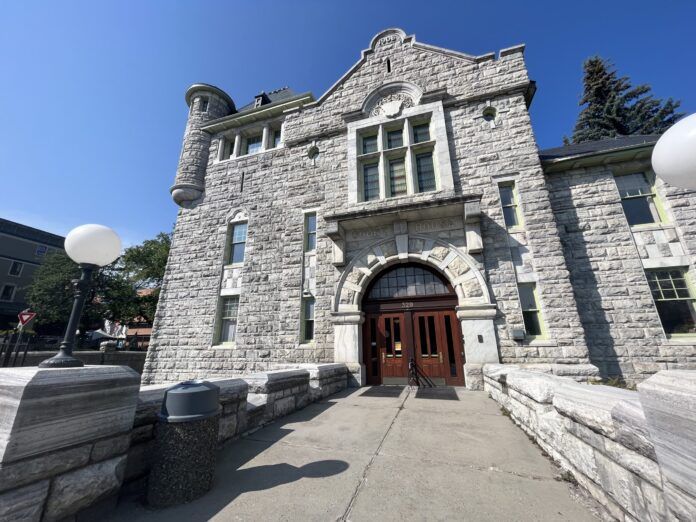A coroner’s inquest in Nelson into the fatal shooting of a Yahk man more than eight years ago heard testimony today from his wife and son as well as the man who shot him.
Waylon Edey, 39, died after Cst. Jason Tait opened fired on the Kinnaird bridge in January 2015. Tait was charged with manslaughter but found not guilty in November 2020 following an eight-week trial. Court heard Tait opened fire when Edey drove towards him after Tait tried to pull him over.
A jury is hearing from witnesses and forensic experts this week in a hearing presided by coroner Kim Ibister.
The inquest began with Edey’s son Elwin and wife Miranda sharing fond memories of him and explaining how losing him has affected their lives. Also testifying was an employee of an A&W drive-thru who interacted with Edey the night of the incident.
Then it was Tait’s turn. He told the jury about his military training and service in three different overseas deployments before joining the RCMP.
He spoke about how he had to respond quickly and only had his sidearm. Tait said while there were other lethal force options available to him that could have been effective, they were in his vehicle and he didn’t have time to reach them.
He said dashcam technology at the time wasn’t as advanced as today and current cameras might have helped the investigation. He was also asked about body cams. RCMP were not using them at the time but a pilot project is supposed to roll out in 2024, including local officers. Tait said he didn’t think the cameras would have made a difference in apprehending Edey, but again would have helped in the subsequent investigation.
Tait said the only way he would have been able to completely stop Edey while in pursuit was with an OnStar-style immobilization system. The technology is not available to police officers anywhere, he said, but if it was he is sure it would be adopted worldwide.
Tait was asked by the attorney generals office if there were additional officers available in Castlegar to help, had Edey been able to enter into town. Tait said there were no officers in town to call for back-up or to intercept him, as they had either gone home or were already in pursuit. He said was not uncommon at the time of the incident.
Tait was also asked where he believed Edey would have encountered another officer if he had continued on Highway 3. Tait responded that he possibly would not have encountered one until he arrived in Grand Forks.
Tait believed his options were limited and said the intervention with his police vehicle was the only choice that complied with protocol.
Following Tait, the jury heard statements from four other witnesses from the night of the incident before being excused for the evening.
The inquest resumes tomorrow morning at 9 a.m. and is expected conclude on Friday.
Coroner’s inquests are mandatory in deaths that occur when a person is detained by police or in their custody. A jury is asked to determine how someone died and recommend ways to prevent similar deaths. However, they don’t make any findings of legal responsibility.
The BC Coroners Service didn’t explain the reason for the delay in this inquest, but they normally wait for until other legal processes conclude. In December 2016, Edey’s mother sued Tait, the provincial government, and the federal attorney general on behalf of her grandchildren. However, the file has not been active since January 2019. Lawyer Jesse Gelber, who acted for the Edey family, said it has been left in abeyance.







